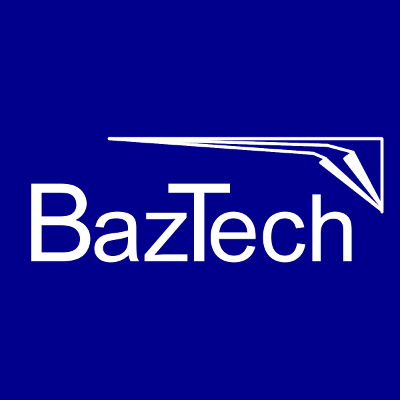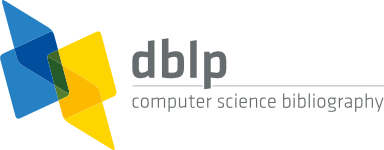e-Informatica Software Engineering Journal (EISEJ) is an international, fully open access (CC-BY 4.0 without any fees for both authors and readers), single-blind peer-reviewed computer science journal using a fast, continuous publishing model (papers are edited, assigned to volume, receive DOI & page numbers, and are published immediately after acceptance without waiting months in a queue to be assigned for a specific volume/issue) without paper length limit. Our aim is to focus on empirical software engineering, as well as data science (AI/ML methods) in software engineering. We strongly encourage that research data and code are made available so that others are able to reach the same results as are claimed in scientific outputs (see, e.g., [1]).
The journal is published by Wrocław University of Science and Technology under the auspices of the Software Engineering Section of the Committee on Informatics of the Polish Academy of Sciences.
Aims and Scope
The purpose of e-Informatica Software Engineering Journal is to publish original and significant results in all areas of software engineering research.
The scope of e-Informatica Software Engineering Journal includes methodologies, practices, architectures, technologies and tools used in processes along the software development lifecycle, but particular stress is laid on empirical evaluation using effective statistical and data science, AI/ML methods, as well as on secondary studies in software engineering (see, e.g., [2, 3, 4]).
[1] L. Madeyski and B. Kitchenham, “Would wider adoption of reproducible research be beneficial for empirical software engineering research?,” Journal of Intelligent & Fuzzy Systems, vol. 32, no. 2, pp. 1509–1521, 2017.
[2] B. Kitchenham, L. Madeyski, D. Budgen, J. Keung, P. Brereton, S. Charters, S. Gibbs, and A. Pohthong, “Robust Statistical Methods for Empirical Software Engineering,” Empirical Software Engineering, vol. 22, no. 2, pp. 579–630, 2017.
[3] B. Kitchenham, L. Madeyski, and D. Budgen, “SEGRESS: Software Engineering Guidelines for REporting Secondary Studies,” IEEE Transactions on Software Engineering, vol. 49, no. 3, pp. 1273–1298, 2023. Supplementary Material (for SEGRESS)
[4] B. Kitchenham, L. Madeyski, and D. Budgen, “How Should Software Engineering Secondary Studies Include Grey Material?,” IEEE Transactions on Software Engineering, vol. 49, no. 2, pp. 872–882, 2023.
e-Informatica Software Engineering Journal is published online and in hard copy form. The online version is from the beginning published as a gratis, no authorship fees, open-access journal, which means it is available at no charge to the public. The printed version of the journal is the primary (reference) one.
Topics of interest
- Software requirements engineering and modeling
- Software architectures and design
- Software components and reuse
- Software testing, analysis and verification
- Agile software development methodologies and practices
- Model driven development
- Software quality
- Software measurement and metrics
- Reverse engineering and software maintenance
- Empirical and experimental studies in software engineering (incl. replications)
- Evidence-based software engineering
- Systematic reviews and mapping studies (see SEGRESS guidelines)
- Statistical analyses and meta-analyses of experiments
- Robust statistical methods
- Reproducible research in software engineering
- Object-oriented software development
- Aspect-oriented software development
- Software tools, containers, frameworks and development environments
- Formal methods in software engineering.
- Internet software systems development
- Dependability of software systems
- Human-computer interaction
- AI and knowledge based software engineering
- Data science in software engineering
- Prediction models in software engineering
- Mining software repositories
- Search-based software engineering
- Multiobjective evolutionary algorithms
- Tools for software researchers or practitioners
- Project management
- Software products and process improvement and measurement programs
- Process maturity models
Funding acknowledgements: Authors are requested to identify who provided financial support for the conduct of the research and/or preparation of the article and to briefly describe the role of the sponsor(s), if any, in study design; in the collection, analysis and interpretation of data; in the writing of the paper. If the funding source(s) had no such involvement then this should be stated as well.
The submissions will be accepted for publication on the base of positive reviews done by international Editorial Board and external reviewers.
English is the only accepted publication language. To submit an article please enter our online paper submission site.
Subsequent issues of the journal will appear continuously according to the reviewed and accepted submissions.
The journal is indexed by Web of Science, Scopus, DBLP, DOAJ, BazTech, Google Scholar , Index Copernicus, etc.
Paper copies of selected issues of the journal are available from us (please contact e-informatica@pwr.edu.pl for details).
Important documents and links:
- Call for Papers
- Authors agreement
- Guide for Authors (including LaTeX template)
- Authors’ Guide – Publication Ethics All authors and reviewers are expected to follow high standards with respect to publication ethics as set out by the Commission on Publication Ethics COPE.
- Author and Reviewer Guides (external link – ManuscriptCentral)
- Reviewer FAQ and Tutorial (external link – Manuscript Central)
- Review Process








